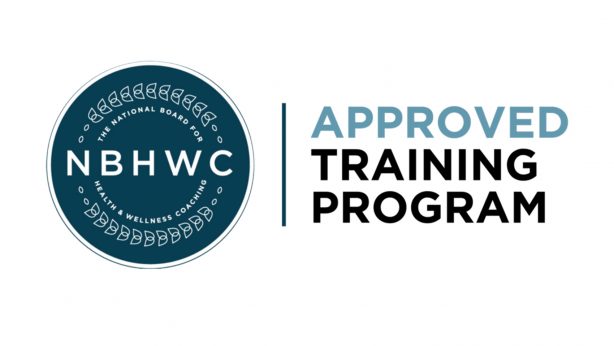
When owning a business, the most important thing you can do is protect your personal assets. This is often accomplished by obtaining an insurance policy that separates your personal assets from your business assets in the event of a lawsuit. However, because health coaching is a relatively new profession, the type and amount of insurance required to run your firm will differ.
Your goal as a health coach is to assist your customers in living better and more expansive lives. You live for those times of celebration when your clients make huge successes. Health coach insurance is usually the last thing on your mind, but it’s a crucial consideration as you establish, select a niche, and grow the business and work you enjoy.
Health coaching is delivering guidance and guiding people through substantial life changes. This has a significant impact on their well-being, as recognised by health organisations worldwide. Nonetheless, health coaching remains a somewhat unregulated sector, leaving health coaches vulnerable to legal claims with little state or federal protection.
Company owners are liable for liabilities, property damage, and personal injury. While you didn’t start a business to worry about legal difficulties, it is critical to safeguard yourself, your reputation, your peace of mind, and your company.
Public Liability insurance
Even with the most careful planning and preparation, a number of things can go wrong when you’re coaching teams, players or participants. That’s why coaches need Public Liability insurance to protect themselves against unexpected accidents that can occur before, during and after sessions.
A professional liability policy protects you safe if you ever make any mistakes while working or you didn’t uphold your obligations with clients. Safeguarding oneself from these sorts of accusations is crucial since they can be expensive to deal with alone.
Professional liability insurance may also assist you in legitimising your business in the eyes of your customers. Clients may inquire about your insurance coverage in addition to your training and certification.
Having an insured health coaching business may convey to them that you take your business seriously and provide them with some piece of mind as a result of that protection.
Commercial Insurance: This type of insurance covers any kind of injury that may happen when a client is on your property.
Commercial Property Insurance: Covers damage to your office if you are the owner of the building as well as equipment, furniture, or inventory.
General Liability Coverage: Also known as commercial general liability or CGL, this is a high-level protective insurance that more generally covers bodily injury and property damage, including making medical payments to the person injured. Compare it with the more specific options above to make sure it fits your needs.
Personal Injury Insurance: If anyone ever tries to defame your name or business, this insurance can help protect and defend you.
Cyber Liability Coverage: If your credit card processing or online payments portals ever have a security breach, this insurance will help you protect your clients and help rectify the situation in as professional a manner as possible.
Commercial Auto Insurance: This is important if you use your car to travel to clients’ houses or workplaces. It will protect you in a work-related accident.
How to become a Health & Wellness Coach
Everyone has different health requirements. These requirements could be the result of a chronic disease or sickness. These could also be more emotional or lifestyle-related. A health and wellness coach assists clients in identifying their individual physical and mental needs. As a result, the health coaching programme becomes more tailored.
Here are 3 simple steps to becoming a Health & Wellness Coach:
Step 1: Take a Health Coach Certification Program
The first step is to get some health education. Discover how various health issues affect a person’s well-being. A health coach training programme will also tell you which food and lifestyle changes will have the biggest impact.
A coach training course might also assist you in developing excellent coaching skills. Developing rapport with customers is an essential coaching skill. Empathy is also important. These coaching strategies will assist you in developing stronger relationships with your customers. They also promote beneficial, long-term change.
While selecting a training course, search for one that provides assistance. When learning how to become a health coach, it’s helpful to have someone to ask questions to. A helpful programme will also help you prepare for your certification exam.
Step 2: Obtain Your Health Coach Certification
Getting your coach certification shows others that you have the education required to assist them in reaching their fitness objectives, regardless of their health needs. Promote yourself as a certified coach to distinguish out from those who did not complete a certificate programme.
You must take and pass an exam to obtain your health coach certification. This exam will assess your understanding of health coaching approaches, abilities, and tools. It ensures that you can utilise what you’ve learnt to serve your clients.
The training programme you select should ideally incorporate health coaching certification. This permits you to become a certified wellness coach without having to take any additional tests. This makes the transition from student to wellness coach considerably easy.
Step 3: Apply for Health & Wellness Coach Jobs or Start Your Own Coaching Business
The third and last stage is to use your new coach qualification to apply for jobs. These positions might have a number of titles. Some job postings describe the position as a health coach or wellness coach. Others are listed as life coaches with a speciality in health and wellbeing.
Another possibility is to obtain your health coach certification and launch your own business. For example, you could specialise in working with customers to help them achieve their weight loss goals. You could also choose to work as a wellness consultant for huge corporations.
Corporate wellness is becoming more popular. Several businesses are collaborating with a certified health coach to develop a wellness programme for their employees. This might be an enjoyable way to put your wellness certification to work. Nevertheless, corporate clients can be lucrative sources of revenue. They are not only able to pay more, but they are also more inclined to sign longer contracts.
Practical Skills Helpful During the Coaching Session
Being analytical. You must be able to analyse health information to determine how it relates to your client. This might involve connecting the dots between a specific lifestyle behaviour and how it could impact a certain health condition.
Being a good communicator. Coaching is all about communication. It involves talking in a way that people understand. It also requires effective listening. The better you are at communicating, the more effective you will be as a certified health coach.
Having good instructional skills. The goal of coaching is to teach clients how to make positive changes. You must be able to tell others how to get from where they are to where they want to be.
Having strong interpersonal skills. Coaching clients come in all shapes and forms. They also come from different backgrounds with different experiences. The stronger your interpersonal skills, the better your ability to interact with each one.
Being good at problem-solving. Let’s face it, coaching is about problem-solving. It involves taking a look at a client’s wellness challenges and finding ways to overcome them. If you’re a problem solver, this can help you during your coaching sessions.
Weljii’s Health & Wellness Coach Certification Program can help you improve your coaching abilities. This training programme offers effective motivational interviewing techniques. You’ll also learn how to use positive psychology to promote customer compliance. Both of these can strengthen your health coach resume by demonstrating your medical knowledge.


